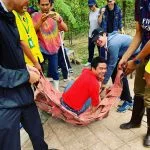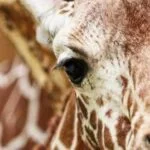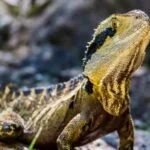Lemur husbandry in Madagascar
Wild Welfare’s field director has been talking lemurs, animal welfare and zoo ethics in Madagascar.
Travelling to Parc Ivoloina in Toamasina, a four-hectare zoological facility on the east coast of Madagascar, our field director Dave Morgan recently attended a workshop aimed at reviewing a new lemur husbandry manual.
The manual was put together by Madagascar Fauna and Flora Group (MFG), for use by the country’s rescue centres and other captive facilities housing lemurs. The workshop was also an opportunity for representatives from the country’s lemur facilities and members of the Ministry of the Environment to come together and discuss important issues surrounding Madagascar’s captive lemurs.
Presenting to more than 30 people from a dozen captive lemur organisations, members of the country’s Ministry of the Environment and representatives from America’s Duke Lemur Centre, Dave Morgan spoke about modern concepts of animal welfare, zoo associations and zoo ethical frameworks.
Dave Morgan, said: “It was lovely to be working with the MFG and Duke Lemur Centre again, having worked with them 15 years ago at Parc Ivoloina.
“It was encouraging to walk around the park and see how the standard of lemur husbandry at Ivoloina has increased since my last visit – and it was pretty good back then too – they have an outstanding enrichment programme for their animals and we need to transfer this high standard of care to other lemur facilities in Madagascar.”
The workshop was jointly organised by Duke Lemur Centre in North Carolina – a facility dedicated to the conservation of the aye-aye, sifaka, and mongoose lemur, and the study and protection of multiple lemur species, and MFG – an international NGO based in Madagascar, that collaborates with US, European, New Zealand and South African zoos, aquariums and related institutions to conserve Madagascan biodiversity.
One of the challenges during the workshop was the initial lack of the concept of ‘animal welfare’ in the Malagasy language (Madagascar’s national language).
“It was a slow process with the consecutive translations into French and Malagasy, with some scientific models not translating very easily at all,” Dave Morgan added.
“Including that of animal welfare – there was no such concept in Malagasy language – there is now of course!”
Current legislation in Madagascar fails to address animal welfare or its enforcement, so Ministry representatives were very interested to learn about zoo associations and ethical frameworks and how industry self-regulation with professional codes of ethics may be used to promote and improve welfare standards in captive facilities across the country.
Wild Welfare is exploring a partnership with MFG, with the aim of helping Madagascan facilities develop a national professional zoo and rescue centre association, that can push forward high standards of care and welfare for the country’s captive lemur population.
~ENDS~
Notes to Editors
For more information or interview requests please contact Wild Welfare on communications@wildwelfare.org
Wild Welfare is a global organisation committed to improving animal welfare for captive wild animals. By uniting the world’s leading zoos, zoo associations and animal welfare organisations, we build trusting partnerships that help provide long-term solutions to critical wild animal welfare issues.
Our vision is to end the suffering of captive wild animals around the world and ensure full and sustainable protection is given to all animals in human care. Find out more at www.wildwelfare.org. Registered charity in England (no.1165941).





